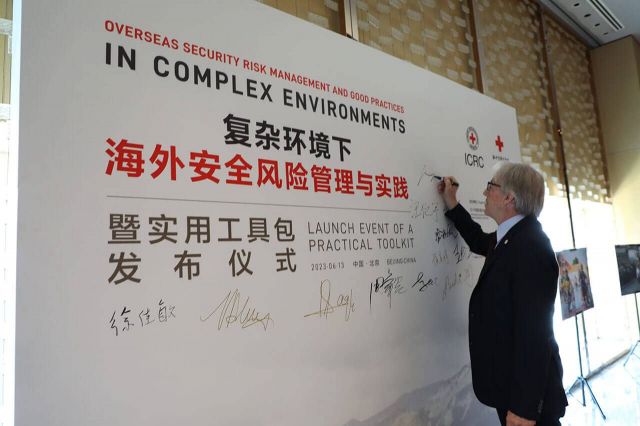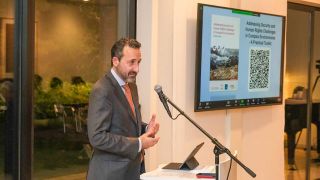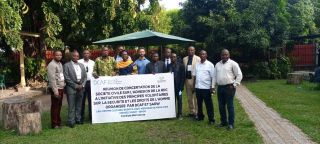Launch of Chinese version of the DCAF-ICRC Toolkit

On Tuesday, 13 June 2023, DCAF-ICRC launched the Chinese version of the Toolkit during a multi-stakeholder event held in Beijing. With nearly 70 participants from Chinese companies, industry associations, academia, and technical experts, the event was hosted by the ICRC and the International Academy of Red Cross & Red Crescent (IARC), with support from DCAF and the Swiss Embassy in Beijing and promoted the Chinese translation of the "Responsible Business and Security Management in Complex Environments" Toolkit.
Specially designed to guide businesses operating in conflict-affected and high-risk areas, the Toolkit serves as a vital compass, guiding them to uphold the human rights and dignity of local communities and effectively manage security. This release is timely, coinciding with the growing trend among Chinese companies to align with international standards and the Sustainable Development Goals (SDGs).
The event provided a platform for different actors to share best practices and perspectives regarding responsible business practices in security management and community engagement when operating in complex environments. In their opening remarks, the Swiss Ambassador and Dean of the IARC respectively emphasized the importance of this practical Toolkit in helping companies manage security issues.
Representatives from ICRC, and DCAF shared their reflections, offering expert insights into the applicability of the Toolkit to Chinese stakeholders and companies operating overseas. IARC also introduced its tailor-made training course based on the Toolkit. Amid ongoing conflicts, these organizations have a proven track of advising and enhancing the practices of enterprises operating in humanitarian crisis scenarios.
For Chinese businesses operating in complex overseas environments, the Toolkit offers a roadmap for navigating security challenges while upholding responsible business practices. In terms of risk prevention and mitigation, it guides enterprises to ensure the safety of their personnel, the welfare of local communities and the sustainability of their operations. A former Chief Community Coordinator of Chalco Guinea, who was in charge of developing the IARC training course based on the Toolkit, hoped to use them to help Chinese companies working in volatile environments to minimize errors, mitigate significant financial losses, and prevent any potential bloodshed.
In line with this, a speaker from the Chinese Academy of International Trade and Economic Cooperation (CAITEC) under the Chinese Ministry of Commerce emphasized the importance of multilateral cooperation. “Companies cannot work in silos but should collaborate and coordinate with international organizations such as the ICRC, United Nations agencies, and development institutions to achieve synergy,” she stressed.
The event took a significant step forward in bolstering the commitment of Chinese companies to embrace security management as an essential part of their human rights due diligence processes. Going forward, we anticipate finalizing and launching another Toolkit-based training tool in Chinese soon, thereby expanding its accessibility and maximizing its impact.




